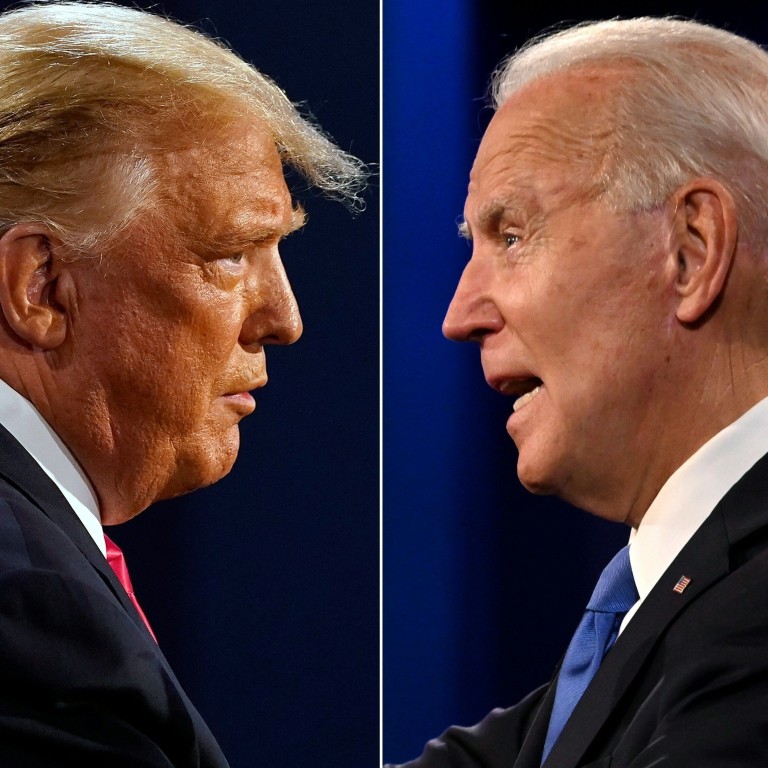
US election: Filipino-Americans lean towards Biden, but Trump still exerts a pull
- The contentious rhetoric between the two camps mirrors that playing out across the country, with even close-knit families divided
- While the Trump administration’s poor handling of the Covid-19 pandemic has seen support for Biden grow, those who favour the president see parallels with the Philippines’ Duterte
Rodis is among the 1.96 million Filipino-Americans eligible to cast a ballot this year, the second-largest minority voting bloc behind the country’s 2.57 million Chinese-Americans, going by data from the Pew Research Centre.
Why are Vietnamese big fans of Trump – both in the US and in Vietnam?
We need a leader who will bring us together, not divide us into warring camps
Most Filipino-American voters also lean blue – with 52 per cent counting themselves as Democrats and 34 per cent inclined to vote Republican – but that political divide has widened, mirroring the polarisation playing out across the US.
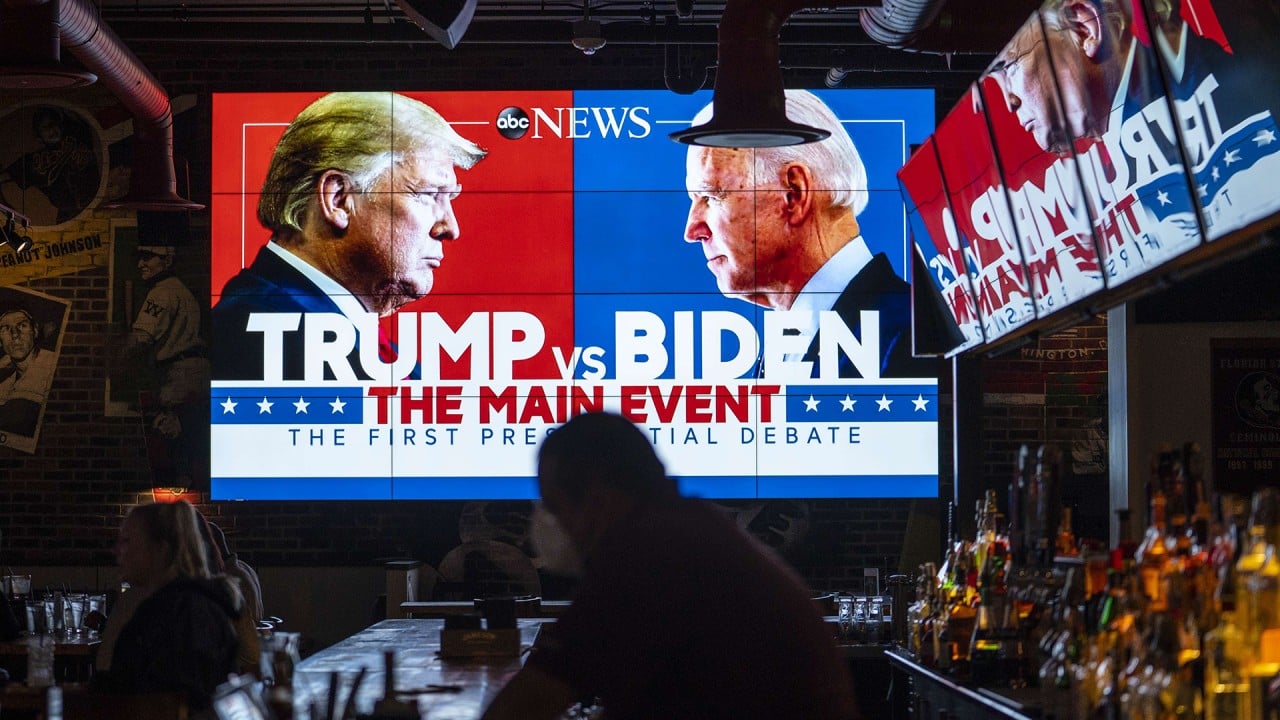
04:54
The US Electoral College: how does it work and why does it exist?
Lila Ramos Shahani, who speaks on gender, race, education, culture and other issues as a volunteer for the Biden/Kamala Harris campaign, pointed out during the October 17 forum that the rhetoric between “Trumpers” and Democrats has grown quite contentious.
Shahani, a dual Filipino-American citizen who now lives in Seattle, Washington, said Biden had values that Trump lacked – “integrity, character, empathy” – and expressed approval for the former vice-president’s plan to expand the Affordable Care Act to provide health care for 97 per cent of Americans, a key issue during the Covid-19 pandemic. There are 8.7 million cases in the US, and more than 225,000 deaths.
Why are so many Vietnamese in the US pro-Trump and anti-China?
IT’S COMPLICATED
But to the likes of Filipino-American businessman Ramon Bunag, Trump is the preferred candidate for his perceived business acumen; standing up to China in trade; being tough against illegal immigrants and abortion; and having a devil-may-care attitude toward the raging pandemic.
“I believe he is a God-appointed person,” said Bunag, who flew from California to Wisconsin to attend Trump’s October 24 rally in Waukesha county with seven other former schoolmates. They wanted to help swing the battleground Midwestern state, where Biden is polling ahead, to Trump’s side.
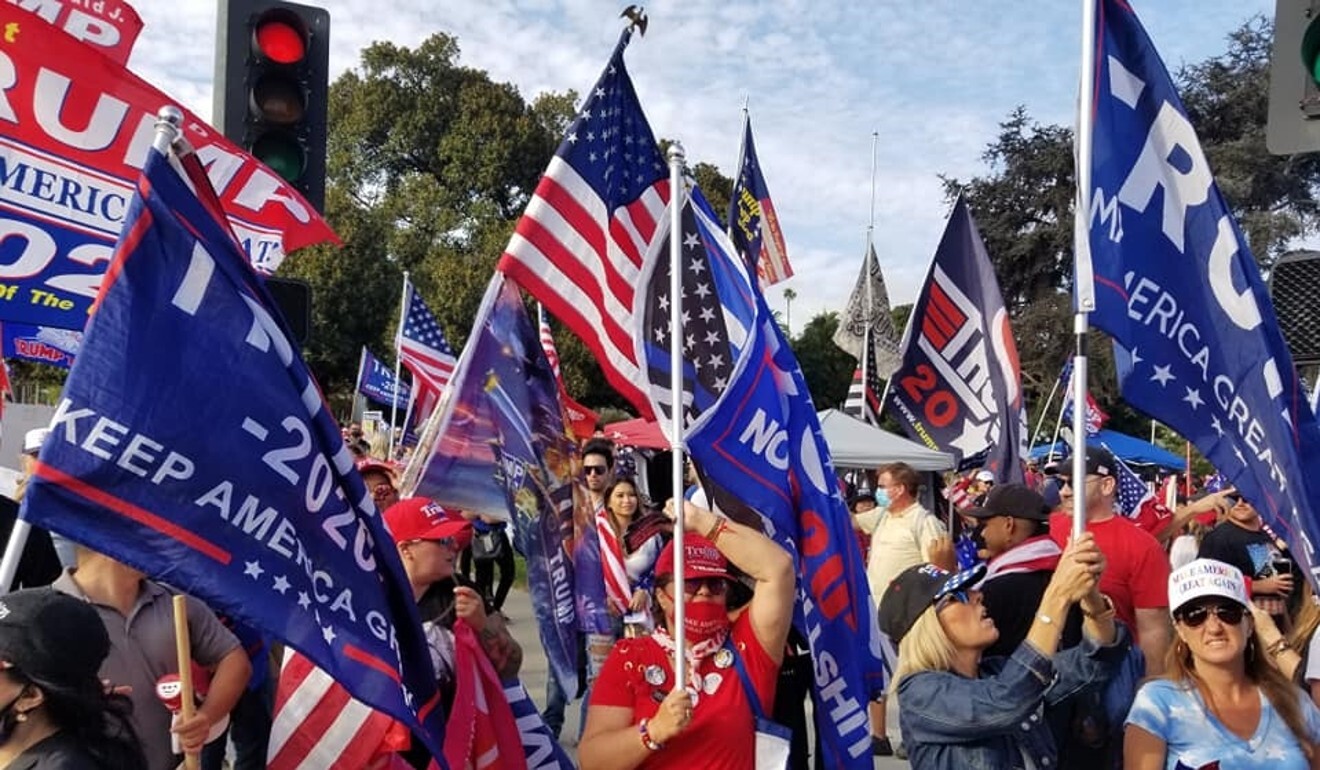
Bunag told This Week in Asia he had voted Democrat for the past three decades, but he was “a full-blooded Republican now” because Biden’s party had “persecuted” Trump by impeaching him in December last year.
The 65-year-old brought a mask to the Waukesha rally but did not wear it, saying he was “not bothered” about getting infected and agreeing with the president’s derision of Biden for raising alarm over the pandemic. To Bunag, mask-wearing has simply become a “political issue” used by the Democrats to club Trump.
I believe [Trump] is a God-appointed person
Property agent Marie Cunning, the president of the Federation of Philippine American Chambers of Commerce, said in the October forum – which was organised by Filipino-American journalist Jannelle So in partnership with the American Association of Retired Persons – that Trump was “the best candidate that can bring us out of this pandemic” because he is a “seasoned businessman”.
She shrugged off Trump’s federal tax payment of only US$750 for 2017, as reported by The New York Times, as a case of “no wrongdoing” because “if US$750 was all he had to pay, what’s wrong with that?”.
“I’d like to know who his accountants are. I’d like to use them,” Cunning said.
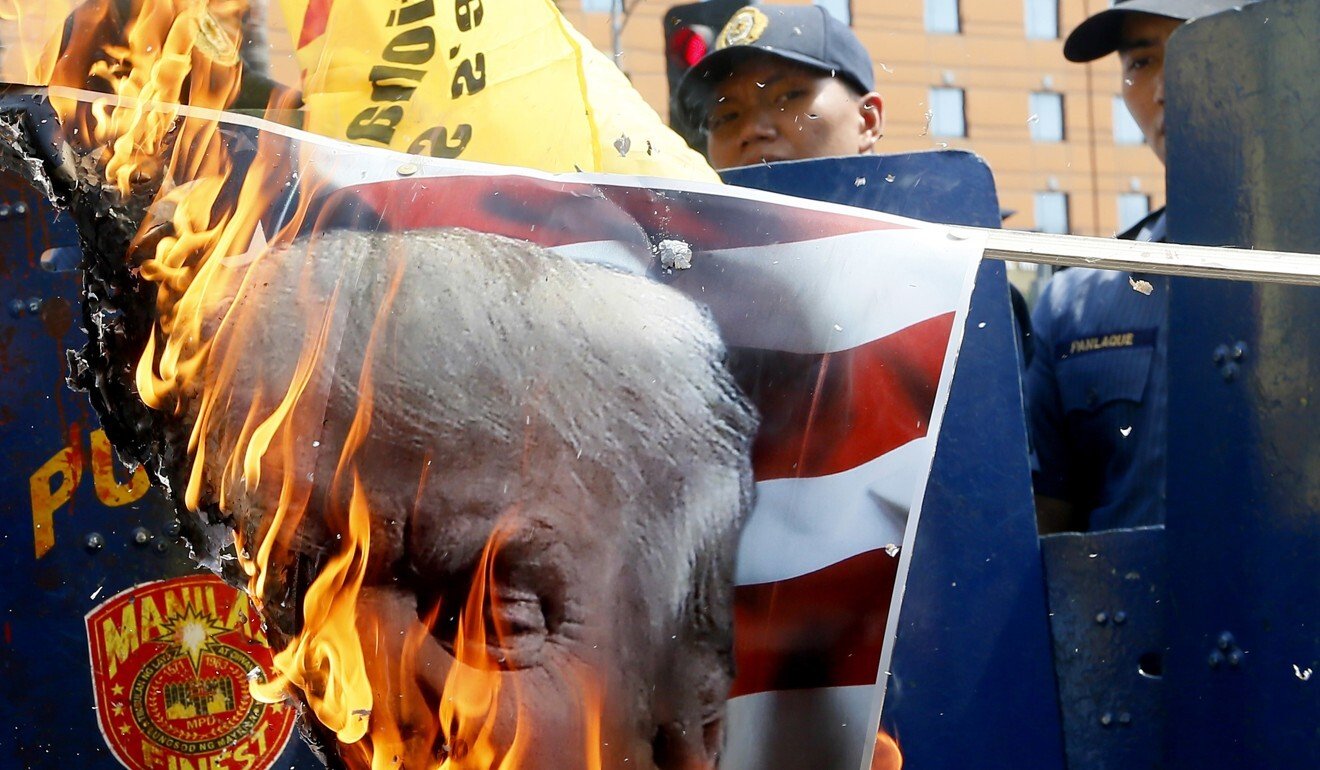
A HISTORY OF RACISM
During his first debate with Biden, on September 29, Trump’s refusal to condemn the violence instigated by white supremacists made international headlines, and did not go unnoticed by the Filipino-American community. “Other racists know [Trump] is a racist and they follow him,” said Rodis from the NaFFAA at the Zoom forum in October.
But to Malou Babilonia, the Filipino-American founder of the Philippines-based environmental NGO Pusod, this explains the president’s appeal – to her, Trump is a racist who appeals to some racist Filipinos.
“We hold racist views, we just don’t see ourselves as doing so,” she said, noting that even among “our very own people, we uphold lighter skin as a higher standard of beauty”. “[These] deep-seated racist views – that we don’t even consider to be racist – make Trump’s anti-black and anti-immigrant stance a non-issue in the decision to go ahead and vote for him.”
Will Trump or Biden be better for Asean countries amid US-China stand-off?
Unfortunately, she said, Biden’s “boring rhetorical style sadly loses the average audience”, while Trump with his sound bites “is the US version of that macho, fact-dismissing, woman-abusing blustering bully”, President Duterte. Trump has been recorded making sexist comments and denies allegations of sexual assault from more than a dozen women, while Duterte December 2018 admitted to sexually assaulting a domestic worker when he was a teenager, later dismissing the statement as a joke after it drew condemnation.
Duterte has endorsed Trump’s re-election, something that has enamoured him to certain Filipino-Americans. Businessman Bunag, for example, said he was “now allowing Duterte to come into my heart” after having previously worked with a group of prominent Filipino-Americans who vocally opposed the extrajudicial killings that took place during the Philippine president’s so-called war on drugs.
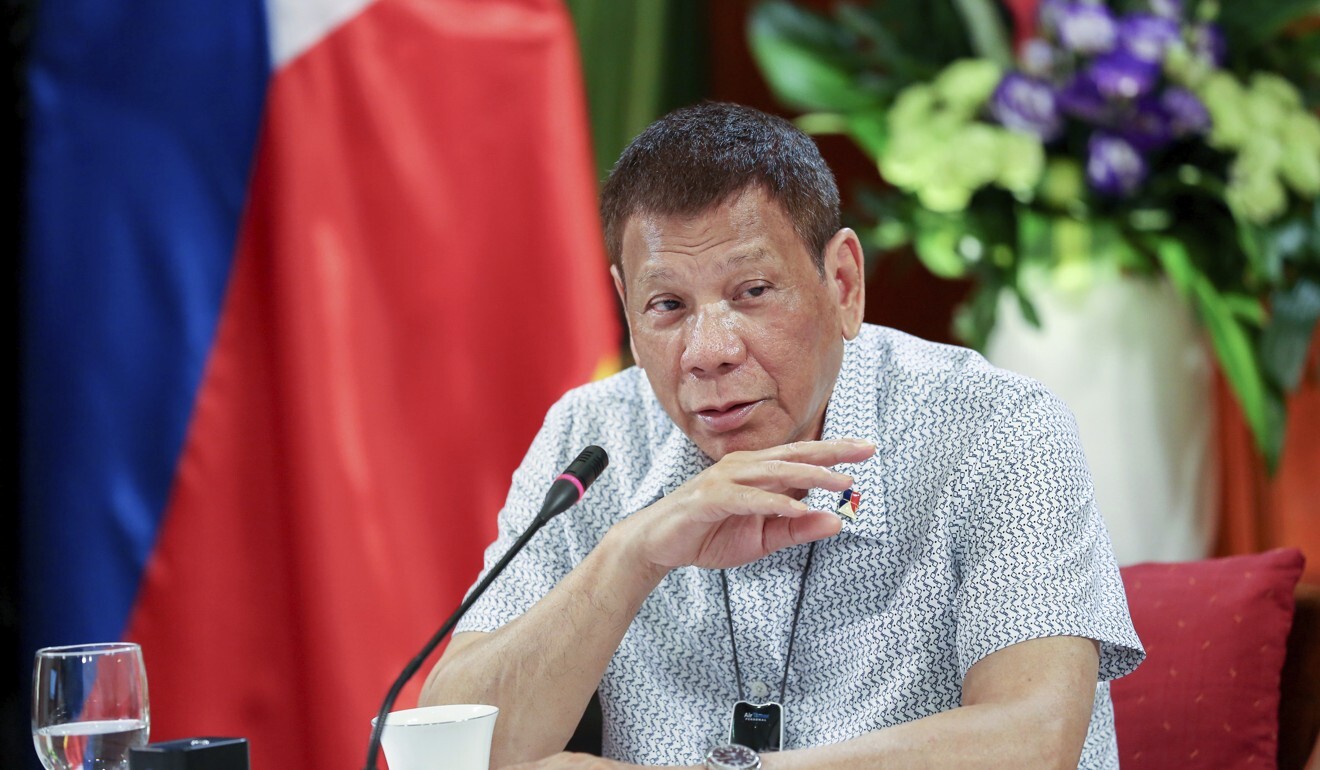
GENERATION GAP
Babilonia also suggests there is a generational divide in the US. “From my own experience, I have found that older generation Filipino-Americans, who are mostly immigrants, are much more vocal about their Trumpism. Within Filipino culture, it’s not OK to disagree or argue with our elders, so younger Filipino-Americans, and even older Democrat Filipino-Americans, will keep silent to keep the peace or to avoid attack, then go ahead and vote Democrat.”
The elections have deeply divided even close-knit Filipino-American families, she said, relating the story of two first cousins who grew up together and did not want to lose their bond – so they figured out a way to manage their opposing positions by focusing on the patriotism they have in common.
Older generation Filipino-Americans, who are mostly immigrants, are much more vocal about their Trumpism
The male Republican cousin, who is in the US army, sticks to the White House’s line of downplaying Covid-19 and said “Democrats and the liberal press are making most of it up”. But Babilonia said the female cousin, who works for the Biden campaign, took an empathic approach to the situation.
“She said to me: ‘In his world, this is what people believe not because they are bad people, but rather based on their lack of education and singular right-wing information sources’,” Babilonia said. “And then they steer the conversation back to ways in which they are both serving the country they love.”
She also pointed out that only the Biden camp has specifically targeted the Filipino-American community with an advertising campaign. The presidential candidate has also tweeted in commemoration of Filipino American History Month, which takes place in October.
However, human rights lawyer Ruben Carranza, a senior expert at the International Center for Transitional Justice in New York, drew parallels between the existence of “Trump-supporting … anti-immigrant” Filipino-Americans and “the fact that Filipino American History Month is founded on Filipino complicity in European genocide against Native Americans in 1587”.
He explained that the month commemorates the first documented arrival of Filipinos aboard Spanish galleons in Morro Bay, California, that year, who could not stay “because Native Americans fought and sent them away”.
“But of course we know that the Spaniards and the rest of the Europeans that came with them eventually did land and decimate the indigenous people who were in the land that Europeans ‘discovered’,” Carranza said. “Filipinos sailed and landed with these Spaniards – and would have, and probably were involved in, displacing indigenous Native Americans.
“Perhaps we can forgive those sailors for their complicity … but Filipino-American Republicans loudly supporting Trump’s [Make America Great Again] cult and their demonisation of immigrants?” he said, referring to recent reports that the parents of 545 children separated from their parents at the Mexican border in 2017 under Trump administration policies have still not been found. “That’s not just enabling and complicity in racism; those are crimes against humanity.”

